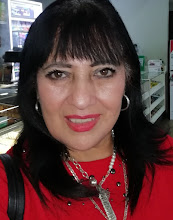Itsmania Pineda Platero is a Honduran journalist and human rights defender. During a recent PWAG visit to Honduras, Itsmania explained how she started her engagement as an activist in the 1990s in the capital Tegucigalpa and talked about the increasing human rights violations in her country, a crisis that is affecting especially the security of women.
In the course of her professional life during the past twenty years, Itsmania’s role has varied from journalist to artist, from street social worker to writer and to local expert on gangs and organized crime. Today, she brings together all of her “lives”, as she calls them, in her engagement as a journalist reporting on the injustices in her country and in the region.
Being nominated for the Nobel Peace Prize was like a protection
Itsmania started out as a human rights defender in the 1990s. Her organization «Xibalbá Arte y Cultura» initiated a project with young people on the streets, helping them to better integrate into society through art and dance. Itsmania soon became a spokesperson for young people at risk and took a role as an adviser on gang issues for governmental institutions and civil society organizations. «During that period, being nominated for the Nobel Peace Prize was like a shield, a protection for me», Itsmania says. In 2011, the organization Xibalbá had to be closed because of the severe persecution of its employees.
In Honduras, the homicide rate has increased dramatically during the past years. According to the National Commission for Human Rights (Comisión Nacional de los Derechos Humanos CONADEH), seventeen persons were killed every day in 2011. Major causes of this violence, the Commission states, are drug trafficking, organized crime and politically motivated violence following the military coup in 2009.
The increasing violence in the region has affected especially the security of women. Globally, Honduras has one of the highest rates of femicides - murdering of women because of their gender - with 473 murders during the past year (CONADEH). «The lack of justice in this country is a serious problem», Itsmania says. Altogether, 90% of all cases are left without conviction. Yet, even when victims denounce their perpetrators, there is hardly any follow-up of the cases of violence. «Honduras does not have enough programs for the protection of women. The government is not doing anything against the culture of impunity around violence against women», Itsmania states.
Itsmania is one of the numerous women human rights defenders whose lives are at risk today in Honduras. «The most important thing is to stay visible. We have to inform the international community about the human rights violations in our country».
http://issuu.com/



